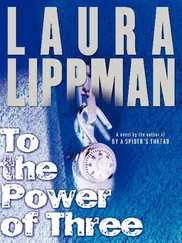“No.”
“Nothing’s perfect,” her father says. “Nobody’s perfect.”
“Karl is. Haven’t you heard? Haven’t you seen his television alter ego, solving everyone’s problems?”
Her father sighs.
“You told me not to marry him.”
“I told you what it would be like to be married to a surgeon. That’s not the same thing. Now there’s a child. Think of her.”
“Maybe I am thinking of her.”
“When we were young, your mother and I-well, not young exactly, I was never young with her, but younger-and you were the only one left at home, there were so many divorces all of a sudden, so many parents who thought their children couldn’t be happy unless they, the parents, were happy. I’m afraid that’s simply not true.”
“You had a great marriage, Dad. It’s not fair to lecture others on marriage, when you had such a good one.”
Her father doesn’t answer right away. “I see your point of view,” he says, forever fair and evenhanded. Later, she will parse these words. Not: you’re right. But: I see your point of view . Was he trying to suggest that his marriage, like hers, might have looked better to those outside it than those in it? But, no, that’s impossible. Everyone knows that the Robisons loved each other madly.
Autumn 1978-Winter 1979
W e would have quickly grown tired of Chicken George except for one thing: he turned out to be mysterious. At least, that’s the way we saw it: He cultivated mystery, excited our curiosity. He was vague in the face of all questions, no matter how benign. How he had come to live in this house, when he had learned the guitar. How old he was. (Go-Go asked the last one. The rest of us knew better than to ask a grown-up’s age.) He avoided all questions and had few of his own, other than: “What did you bring me?” Still, it would have been better, harsh as it sounds, if we had stopped visiting him. It’s nice to think so, at any rate, because if we had tired of him, then things might have gone differently. And this is a story about things we wished had gone differently. Aren’t all stories?
Anyway, Chicken George had a way of disappearing. The first time, it was November, and we assumed it was weather-related. The wind had started to kick up, the pleasant tang of October had given way to a steady dank cold. Weather was more reliable then. This is not memory, but hard scientific fact. The weather of our childhood was part of an unusually temperate time on our planet, with fewer extreme variations. The things we have seen in recent years-the events of just the past year, with almost a hundred inches of snow in Baltimore and floods, not to mention volcanoes and earthquakes, birds falling from the skies-might well be connected to climate change, the wear and tear that humans wreak on a planet. We are not here to argue science. But weather was more predictable then, and when it turned cold, it stayed cold, so cold the pond froze for days, even weeks of ice-skating. It made sense that Chicken George would disappear during such weather. Not that one could tell, by the look of the cabin, that anything had changed. It was as we had first found it, complete with the chickens in the yard and clothing on the line. Go-Go was the one who thought to look for his guitar. That was missing, too.
“What about the chickens?” Gwen asked.
“What about them?” countered Tim.
“They’ll die out here. Animals will eat them.”
“So what? Chicken George was going to eat them, too. What’s the difference?”
“But Chicken George would have been more humane.”
Tim laughed. “You think so, Gwen? You think that snapping an animal’s neck is that much more humane than being snatched up in the jaws of a dog or a fox? Dead is dead.”
Go-Go liked that. “Dead is dead,” he raved. “Dead is dead!” He began throwing rocks at the chickens, then running among them, scattering them. But those chickens were tough. They spread out, giving Go-Go room, but they didn’t disperse.
Mickey and Sean had been quiet throughout, systematically looking through George’s things, trying to find clues. Mickey, although uninterested in school, had a talent for deduction. Gwen’s father, noticing how she examined facts and reached conclusions, had tried to interest her in the works of Arthur Conan Doyle, but she had no patience for Sherlock Holmes. Or Nancy Drew, or Trixie Belden, or books in general. She was disdainful of people who read but not in a defensive, anti-intellectual way. She thought reading was a ruse, a completely wasteful activity. If Mickey were the kind of person who trafficked in similes or metaphors, she might have compared reading to rules such as not swimming an hour after a meal, or never going out of the house with wet hair. Instead, she just didn’t read and was baffled by those who did. She didn’t like television much, either. Mickey plain didn’t like sitting still. She wanted to make things happen. She wanted to see if she could jump from mossy stone to mossy stone without falling. She wanted to poke snapping turtles with sticks, and if one snapped, well, that was the point. She would have liked to live like Chicken George-in a cabin, accountable only to herself, although preferably with indoor plumbing.
“He’s gone,” she said and then it was real. Chicken George was gone. Sean picked up her words, repeated them. “He’s gone.”
We were sad. No one cried. Tim, Sean, and Mickey never cried, and Gwen and Go-Go had learned to follow their example. But we were all disappointed, and surprised at how disappointed we were. We had brought a bag of canned goods that day, plucked mainly from the Robisons’ kitchen, as Tally Robison was the least likely to notice anything missing, although once there was an amazing rage when she didn’t find the artichoke hearts she was sure she had in the pantry. Inventories were tighter, more closely monitored, in the other households. Sean, though, sometimes bought a few things out of his allowance, and he had added a can of deviled ham and ready-to-eat baked beans to the sack that Gwen carried. Now he took them out and placed them on Chicken George’s shelves.
“They’ll just get stolen,” Tim said.
But everyone understood what Sean was doing. He was acting as if Chicken George was okay, as if he would return. And soon, much sooner than we expected, he did. It was a raw February day, with plenty of winter left to go, when Mickey saw, or said she saw, a plume of smoke rising from his house. We trooped over there, our feet sticking in the muddy paths, which had been snow-covered only a week or so earlier.
When we arrived, Chicken George was inside his cabin. It wasn’t warm, exactly, but it was tolerable, a wispy heat emanating from the old woodstove. He wore multiple layers of clothes and fingerless gloves.
“Where you been?” he asked, as if we were the ones who disappeared. “What did you bring me?”
W hen the man in 17F rings his call button and announces he is pretty sure he has thrown his dentures into one of the trash bags by accident, McKey need only to glance at her less-senior colleague.
“I don’t see why-” Wendy begins.
“Seniority has its privileges,” she says. McKey has no idea if seniority applies in this situation, but she isn’t about to go scrabbling through the trash because some geezer can’t keep track of his own teeth. It isn’t her problem. She has a full set of teeth.
“Seniority is a terrible way to determine who does what,” Wendy grumbles.
“Yeah, that’s what everybody says when they don’t have it.”
McKey has been with the same airline fifteen years now and has lineholder status, which means she usually knows her schedule a month in advance. Wendy is still a reserve, being plugged into the schedule where she fits. Maybe she’d be a better sport about working her way up if she weren’t also McKey’s age, possbily older. She looks older, that’s for sure. The airlines hire lots of over-forty attendants these days, women reentering the workforce as nests empty or husbands decamp. The airlines probably think that mothers and wives are well suited to waiting on a group of people who regress to childhood-and a surly, drunken childhood at that-the minute they board an airplane. McKey isn’t so sure. She’s neither wife nor mother, yet she is good at this, has been from the start.
Читать дальше
Конец ознакомительного отрывка
Купить книгу












